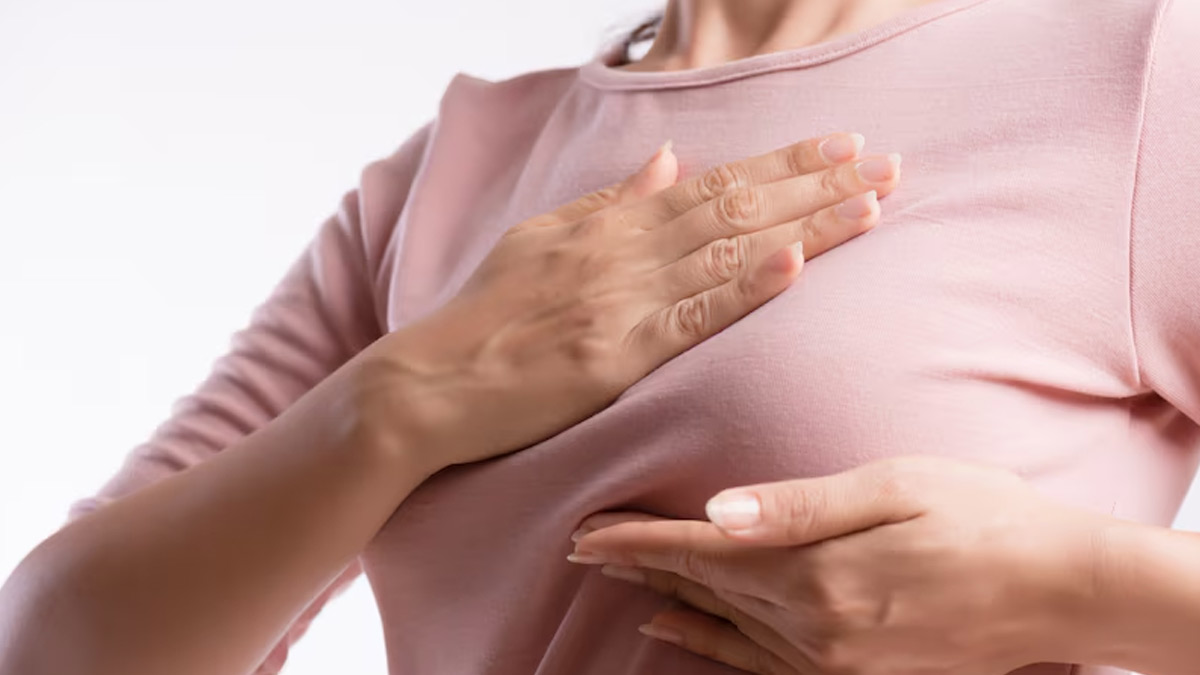
Breast cancer is a major health issue that impacts millions of women globally. Hence, we celebrate Breast Cancer Awareness Month as an annual October campaign to raise awareness about breast cancer. It emphasises treatment, prevention, and early detection. Doctors and healthcare providers believe that by raising awareness, we can motivate women to put their health first and get help when they need it.
Table of Content:-
Even though early detection is crucial, many women may be reluctant or afraid to get help when they feel a lump in their breasts. We talked to Dr Anil Thakwani, Consultant and Senior Oncologist, Sharda Care - Health City, in honour of Breast Cancer Awareness Month to seek professional guidance on what to do if a person discovers a lump in their breasts. Here is what he shared with us.
What To Do When You Feel A Lump In Your Breasts?
1. Don't Freak Out!
Remaining composed is the first and most crucial thing to keep in mind. "Even though discovering a lump can be frightening, it's important to remain calm," shared Dr Thakwani. "Although the majority of lumps are benign, it is crucial to have a medical practitioner examine them in order to rule out any possible issues."

Also Read: Air Pollution Linked To Increased Risk Of Type 2 Diabetes: 5 Ways To Stay Protected
2. Make An appointment
Making an appointment with your physician is the next step after finding a lump. "To ascertain the nature of the lump, they will perform a comprehensive physical examination and might suggest further testing, like an ultrasound or mammography," he added.
3. Be Aware of Your Family's Past
"Your chance of developing breast cancer may be significantly influenced by your family history," Dr Thakwani clarified. Hence, it's important to talk to your doctor about any family history of breast or ovarian cancer and to adhere to screening recommendations.
4. Conduct Frequent Self-Examinations
You can learn more about your breasts and identify any changes, such as lumps, by doing routine breast self-examinations. Self-examinations can be a useful tool in early detection, but if you feel something's up, visit a doctor since they cannot replace expert screenings.
5. Continue to Lead a Healthier Lifestyle
"You can lower your risk of breast cancer by leading a healthy lifestyle. This includes eating a healthy, balanced diet, staying within a healthy weight range, consuming alcohol in moderation, and exercising frequently," he shared.
6. Request Assistance
Seeking assistance from friends, family, and support groups is crucial if you receive a breast cancer diagnosis. "Discussing your emotions with others might help you deal with any emotional difficulties that may come up," he suggested.
Conclusion
In the battle against breast cancer, keep in mind that early detection is essential. You can actively participate in your own health and well-being by taking these actions and getting medical help as soon as possible. So, the next time you feel that there is a lump or cyst in your breasts, don't panic and seek medical help from a professional. Remember, it is always better to be safe than sorry!
Also watch this video
How we keep this article up to date:
We work with experts and keep a close eye on the latest in health and wellness. Whenever there is a new research or helpful information, we update our articles with accurate and useful advice.
Current Version